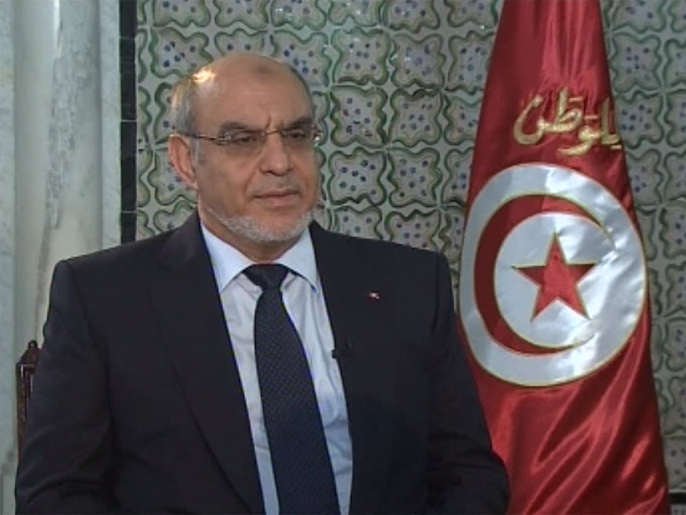Lawyers for Hamadi Jebali, the former prime minister and former leader of the Ennahda movement, announced that he had entered a hunger strike after he was arrested on Thursday for the second time in two months.
Jebali's lawyers stated that he was taken Thursday by the anti-terror squad for interrogation at the security headquarters in Bouchoucha in the capital.
The Ministry of Interior, contacted by Reuters, declined to comment on the news of Jebali's arrest, but called a press conference on Friday without giving any details about the conference.
Jebali, who is affiliated with the Ennahda movement, headed the Tunisian government from December 2011 to February 2013, and ran for the presidential elections in 2019.
Jebali's official Facebook page said, "Former Prime Minister Engineer Hamadi Jebali was detained in Sousse (east) by a security squad, his mobile phone and that of his wife were seized and taken to an unknown destination."
The page added that the security forces attributed Al-Jabali's arrest to not having a national identity card, which he was prevented from obtaining when he applied to renew it with the passport several months ago.
The Jebali family held Tunisian President Kais Saied fully responsible for the physical and psychological safety of the former prime minister, calling on civil society and human rights organizations to "stand in the face of these repressive practices and inhumane abuses of the rights and freedoms guaranteed in the constitution," according to the page.
For his part, Maher Al-Madhyoub, assistant to the speaker of the dissolved parliament, sent a letter to the president of the Madrid Club of Heads of Government, Danielo Terk, informing him of the arrest of Al-Jabali for the second time in less than two months.
Madhyoub said in his letter, "The Tunisian authorities are arresting your colleague, Hamadi Jebali, the former head of the Tunisian government, and he is being taken to an unknown destination and in the absence of his lawyer, with unfair procedures towards his family and his workplace, and without the slightest regard for his health status, which caused a serious health crisis for his wife." ".
For his part, Private Radio Mosaique stated that the Public Prosecution Office of the Anti-Terrorism Judicial Pole authorized, on Thursday evening, the detention of former Prime Minister Hamadi al-Jabali, pending investigations related to money laundering suspicions attributed to members of a charitable association.
On May 12, the Tunisian Ministry of Interior announced that it had arrested Jebali and his wife on charges of "possession of dangerous substances", and he was released on that day, after human rights pressure.
In this context, the Ennahda movement, in a statement on Thursday, strongly condemned what it said were "repeated attempts to involve renaissance leaders in cases pledged by the judiciary and concluded research on them through malicious accusations based on false rumors."
Ennahda considered attempts to involve its leaders in cases as a "desperate and scandalous attempt" by the authority to distort the movement and incite against it and to distract citizens from the real issues of the country.
Tunisia has been experiencing, since July 25, 2021, a severe political crisis, when President Kais Saied began imposing exceptional measures, including the dissolution of Parliament and the Judicial Council, the issuance of legislation by presidential decrees, and the early parliamentary elections to December 17.
Tunisian forces consider these measures a "coup against the constitution", while other forces see them as a "correction of the course of the 2011 revolution," which overthrew the then Tunisian President Zine El Abidine Ben Ali.
As for Saeed, who started in 2019 a 5-year presidential term, he said that his measures are "measures within the framework of the constitution to protect the state from an imminent danger."

